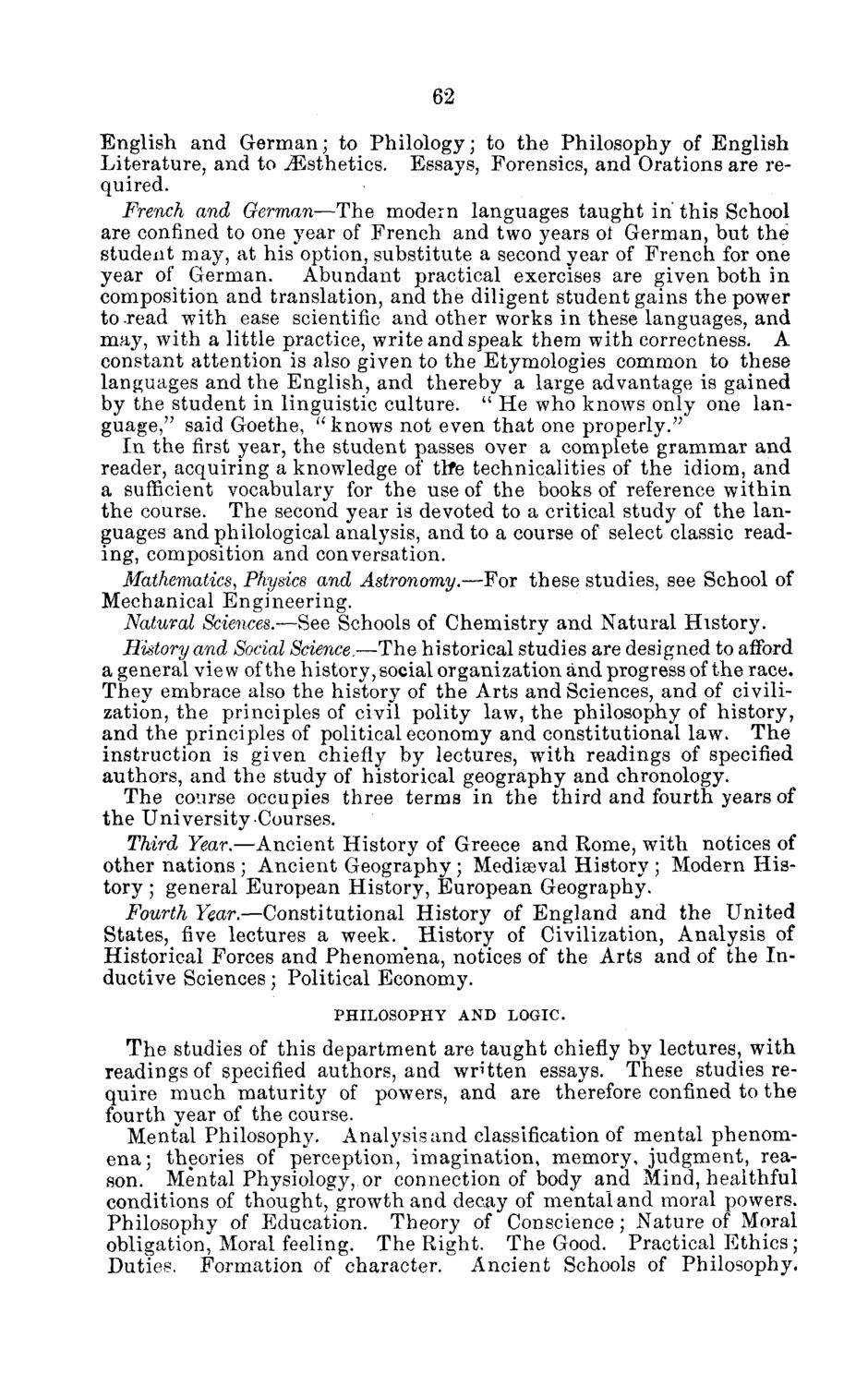| |
| |
Caption: Board of Trustees Minutes - 1876
This is a reduced-resolution page image for fast online browsing.

EXTRACTED TEXT FROM PAGE:
62 English and German; to Philology; to the Philosophy of English Literature, and to ^Esthetics. Essays, Forensics, and Orations are required. French and German—The modern languages taught in' this School are confined to one year of French and two years ot German, but the student may, at his option, substitute a second year of French for one year of German. Abundant practical exercises are given both in composition and translation, and the diligent student gains the power to read with ease scientific and other works in these languages, and may, with a little practice, write and speak them with correctness. A constant attention is also given to the Etymologies common to these languages and the English, and thereby a large advantage is gained by the student in linguistic culture. " He who knows only one language," said Goethe, " knows not even that one properly." In the first year, the student passes over a complete grammar and reader, acquiring a knowledge of trfe technicalities of the idiom, and a sufficient vocabulary for the use of the books of reference within the course. The second year is devoted to a critical study of the languages and philological analysis, and to a course of select classic reading, composition and conversation. Mathematics, Physics and Astronomy.—For these studies, see School of Mechanical Engineering. Natural Sciences.—See Schools of Chemistry and Natural History. History and Social Science,—The historical studies are designed to afford a general view of the history, social organization and progress of the race. They embrace also the history of the Arts and Sciences, and of civilization, the principles of civil polity law, the philosophy of history, and the principles of political economy and constitutional law. The instruction is given chiefly by lectures, with readings of specified authors, and the study of historical geography and chronology. The course occupies three terms in the third and fourth years of the University Courses. Third Year.—Ancient History of Greece and Rome, with notices of other nations ; Ancient Geography; Mediaeval History ; Modern History ; general European History, European Geography. Fourth Year.—Constitutional History of England and the United States, five lectures a week. History of Civilization, Analysis of Historical Forces and Phenomena, notices of the Arts and of the Inductive Sciences; Political Economy. PHILOSOPHY AND LOGIC. The studies of this department are taught chiefly by lectures, with readings of specified authors, and written essays. These studies require much maturity of powers, and are therefore confined to the fourth year of the course. Mental Philosophy. Analysis and classification of mental phenomena; theories of perception, imagination, memory, judgment, reason. Mental Physiology, or connection of body and Mind, healthful conditions of thought, growth and decay of mental and moral powers. Philosophy of Education. Theory of Conscience; Nature of Moral obligation, Moral feeling. The Right. The Good. Practical Ethics; Duties. Formation of character. Ancient Schools of Philosophy.
| |